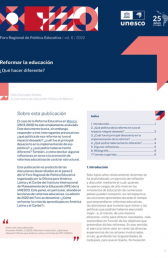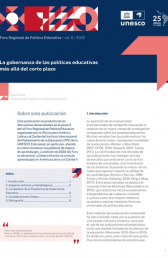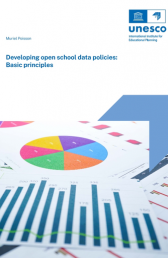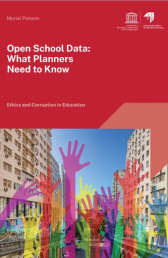
About the publication
Rigged calls for tender, embezzlement of funds, illegal registration fees, academic fraud - there is no lack of empirical data illustrating the diverse forms that corruption can take in the education sector. Surveys suggest that fund leakage from education ministries to schools can be huge, bribes and payoffs in teacher recruitment and promotion lower the quality of the pool of teachers, and illegal payments for school entrance contribute to low enrolment and high drop-out rates. This book presents conclusions drawn from IIEP's research into ethics and corruption in education. It aims to build awareness among decision-makers and education managers of the importance of combating corruption, to provide them with tools to detect and assess corruption problems, and to guide them in formulating strategies to curb malpractices. After defining the key concepts of corruption, transparency, accountability and ethics, it identifies the main opportunities for corruption in education. It describes tools that can be used to assess corruption problems - such as perception and tracking surveys. Lessons are drawn from strategies used worldwide to improve transparency and accountability in educational management. The authors bring these together in a list of recommendations for policy-makers and educational managers. They argue that transparent regulatory systems, greater accountability through strengthened management capacity, and enhanced ownership of the management process can help build corruption-free education systems.









